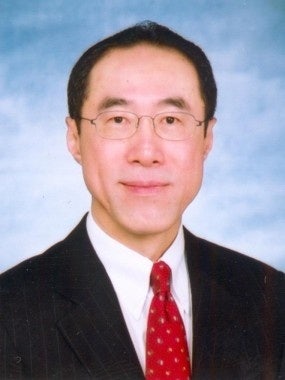Hong Kong Chief Secretary For Administration Outlines Plan For Hong Kong's "West End" Cultural District#

Over the past few years, the Hong Kong government has set out to establish the city as Asia's foremost cultural hub, with a particular emphasis in recent months as the Singapore government announced that it intends to do the same. In a recent article ("Art Wars") in the Wall Street Journal pointed out, both Singapore and Hong Kong see status as Asia's cultural capital as key in their hopes of being seen as the top city of Asia, and both are investing millions in the hopes of nurturing a world-class arts and culture infrastructure. From the article:
Both cities understand that "to build a super-competitive, super-productive society" that "can attract the world's best and brightest" professionals from an array of industries they need a world-class arts and culture scene, says Richard Florida, who studies global competitiveness and urban development at the University of Toronto. "What makes New York and London so robust, even at times of economic crisis, is that anyone in the world wants to go there (to work) and that's what Hong Kong and Singapore are trying to be." Right now, Mr. Florida adds, "Hong Kong has the edge."
Recent sales have attested to the opinion that Hong Kong is, at the moment, winning in the race to become Asia's
auction#
epicenter, but culture is another matter entirely. This week, Hong Kong Chief Secretary of Administration Henry Tang Ying-yen (唐英年), delivered a speech at the "Hong Kong, A Tapestry of Art and Culture" reception in New York that set out his government's plan to deliver a fuller, more diverse array of cultural events and venues to Hong Kong residents. According to Tang, Hong Kong -- like other major cultural hubs like New York and London -- is a "melting pot" that brings together cultures from all around the world, saying, "nowhere else that combines western and Chinese culture quite like we do in Hong Kong."
In addition to the annual Dragon Boat Festival held in Hong Kong, Tang discussed some of his city's traditional and more recent cultural events:
Our Tourism Board is adding new attractions and activities all the time. Last year we held the first Wine and Dine Festival, which immediately was rated one of the top 10 international food and wine festivals by (ForbesTRAVELER.com).
We must be doing something right, because in 2008 more than 29 million visitors came to Hong Kong. That's more than four times the size of our population. Despite the global financial crisis, our tourist arrivals for 2009 reached a record high of close to 30 million, and we aim to attract even more this year.
As part of Tang's vision for Hong Kong, he discussed his government's plans for constructing the Chinese answer to London's West End -- the West Kowloon Cultural District, or WKCD for short:
WKCD is a 40-hectare site along our spectacular Victoria Harbour and it is about to undergo a dramatic transformation. Plans are well under way for no less than 15 arts facilities on the site including concert halls, theatres, a contemporary arts museum, and a mega performance venue.We will select a number of iconic architectural designs and incorporate piazzas for people to relax and enjoy the atmosphere.
It will be our very own West End but with a Broadway skyline. Our aim is to create a modern and high quality venue to bring arts to the people and people to the arts. World-renowned architects are assisting us in drawing up the development plan for the project.
This may sound ambitious for a city of just seven million people. But don't forget the almost 30 million visitors each year. We are also on the doorstep of the Mainland of China and a short hop from the thriving Pearl River Delta region which is home to over 50 million people.
Fewer restrictions for cross-boundary travel and new transport infrastructure are making it easier for everyone to get around. We are pressing ahead with a project to construct an Express Rail Link that will connect to the high-speed rail network on the Mainland with a terminus in West Kowloon. Travelling time to Guangzhou will be just 48 minutes and even less to Shenzhen.
The potential is enormous for WKCD to become the cultural focus not only for our city but also for our region. The government has provided an upfront endowment of about US$2.8 billion [HK$21.6 billion] for the project and the first phase of WKCD is scheduled to open in 2014/15. In parallel with planning, designing and building the facilities, we are working hard to strengthen the soft cultural infrastructure.
It will be interesting to see how Singapore responds to Tang's plans. Hong Kong has, if nothing else, significantly upped the stakes and shown the city government's willingness to spend whatever it takes to regain -- and hang on to -- what many in Hong Kong feel is their city's diminished cultural primacy. As Media Asia wrote last week, Hong Kong's government will have to work overtime to compete against its emerging rivals, Singapore and, increasingly, Taiwan:
In some ways [Hong Kong's gradual loss of cultural primacy in the region is] a natural reflection of the growth of the Asian market. There are now plenty of alternatives to Hong Kong that didn’t exist during the city’s heyday. Also, the city’s authorities, focused on property and finance, have been slow to embrace the media and creative sector. Certainly, compared with Singapore, which offers huge tax breaks to media companies willing to relocate, Hong Kong has failed to keep up.
Though Hong Kong will have a lot of work ahead if it's to beat Singapore as the top Asian media hub, with new developments like the West Kowloon Cultural District and the US$38 million CreateHK fund (designed to finance creative projects) announced last summer, it appears that the ball is now in Singapore's court.